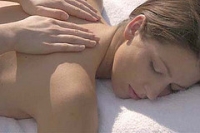De – stress Regimes – Overcoming Stress

Research shows that your stress levels can have a profound effect on your health. If you suffer from chronic stress you may exist in a permanent state of physiological arousal: your heartbeat and blood pressure are constantly elevated and stress hormones such as adrenaline are circulating in your bloodstream. Chronic stress is implicated in a number of age-related health problems, the main one being cardiovascular disease.
What Is Stress? Stress is a physiological survival mechanism. When you sense that you are under threat, the brain responds by sending a message to the adrenal glands on top of your kidneys, which, in turn, respond by releasing adrenaline. Adrenaline has effects on various body system that, in combination, enable you to take action: to either run away from the source of the threat or to stay and fight. This is known as the “fight or flight response”. Although this physiological response may have been useful in primitive times, when humans needed to literally fight or run away from sources of danger, it is less useful in modern society, where sources of threat are mainly physiological. For example, a contemporary source of stress might be travelling to work on crowded public transport when you are already late for a meeting. Your brain registers stress but you will not be able to take advantage of the subsequent adrenaline rush because no physical action is necessary. When instances of stress are occasional and short-lived, the body can cope (some degree of stress helps us to stay motivated and to meet our goals), but when they are frequent and long-lasting the body maybe perpetually in a state of high alert. This is when your vulnerability to problems such as cardiovascular disease increases. For this reason, it is essential to find ways to overcome chronic stress as you get older.

Dietary Support:
People often turn to “quick Fixes” when they are under stress. They feel tired, irritable and lacking in energy and they often turn to chocolate, caffeine or alcohol for stress relief, or a quick energy burst. Unfortunately, these substances deplete the body of energy and make you feel worse. The most important nutrients to include in the diet when you are under stress are the B vitamins, vitamin C, Zinc, Chromium and Magnesium. Dietary therapists may recommend taking a multivitamin and mineral supplement that supplies these nutrients. It is also very important to avoid sugary foods when under stress because they stimulate the stress hormone cortisol. Instead eat foods such as bananas, wholegrains, seeds, beans and lentils.

Yoga, Meditation And Breathing:
Learning relaxation techniques is a powerful antidote to stress. Yoga and meditation teach you how to still the mind and focus on something simple such as the breath flowing in and out of your body. When you are stressed your breathing is usually fast and shallow. Making a conscious effort to relax your muscles and breathe deeply can help you to overcome stress. Yoga and meditation techniques are best learned from a trained therapist or teacher, but there are also plenty of books available. One useful meditation technique is the Humming Bee practice. Sit in a comfortable position and close your eyes. Focus on the breath entering and leaving your nostrils. Say to yourself: “I am aware of breathing in. I am aware of breathing out”. Use your fingers to close your ear flaps and imagine the sound of a humming bee inside your head. Breathe in and, as you breathe out, make the sound of a humming bee. Breathe in and repeat. Try to concentrate on the sound and on your breathing. Regular practice of this exercise should help to still your mind.

Aromatherapy And Massage:
A range of complementary therapies can help to ease stress: Acupuncture, Reflexology, Hypnotherapy, Homeopathy and Flower remedies. Aromatherapy and massage are very widely used in the treatment of stress and aromatherapists recommend the following essential oils: Basil, bergamot, clary sage, chamomile, geranium, hyssop, juniper, lavender, marjoram, thyme, cedar, neroli, rose and sandalwood. Massage can help to ease stress by relieving muscle tension and enhancing circulation. Try a stress relieving bath consisting of 2 drops each of chamomile and marjoram, and 4 drops of juniper. Alternatively, try a drop each of chamomile, juniper and marjoram dropped onto a tea bag and put in a large cup of hot water during times of stress.

Personal Stress Beaters:
Everyone has their own way of overcoming stress and it is important to cultivate methods that work for you. Some people unwind by talking to friends or a partner or by being sociable, others relax by spending time on their own. Exercise is a stress-beating technique that works for many people as it uses up adrenaline. The endorphin rush that exercise brings can also provide a sense of well-being. Sometimes a change of attitude can turn a situation into a non-stressful one: Ask yourself if a situation can be turned to your advantage in any way. Some people decide that, rather than trying to relieve the symptoms of stress, they will tackle the underlying cause. This may involve leaving a stressful job or ridding yourself of other responsibilities you can no longer manage. Pet ownership can have a remarkable effect on stress levels. Pets act as morale boosters by offering unconditioned loyalty. They can provide a valuable outlet for people who find it difficult to express their emotions – this in itself is catharctic.